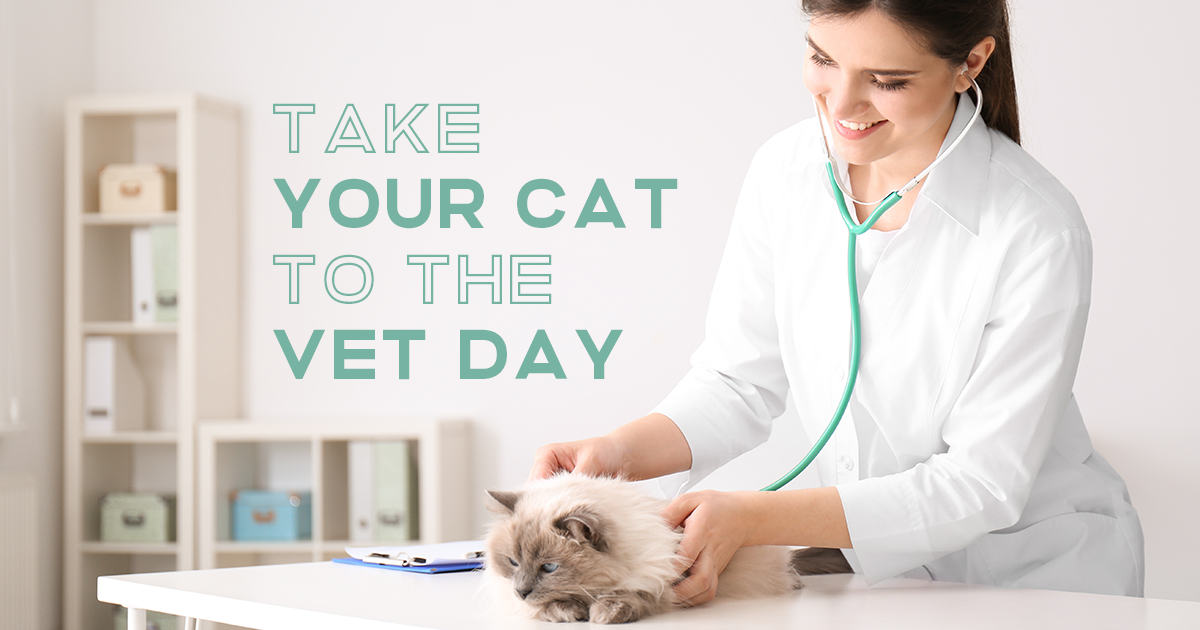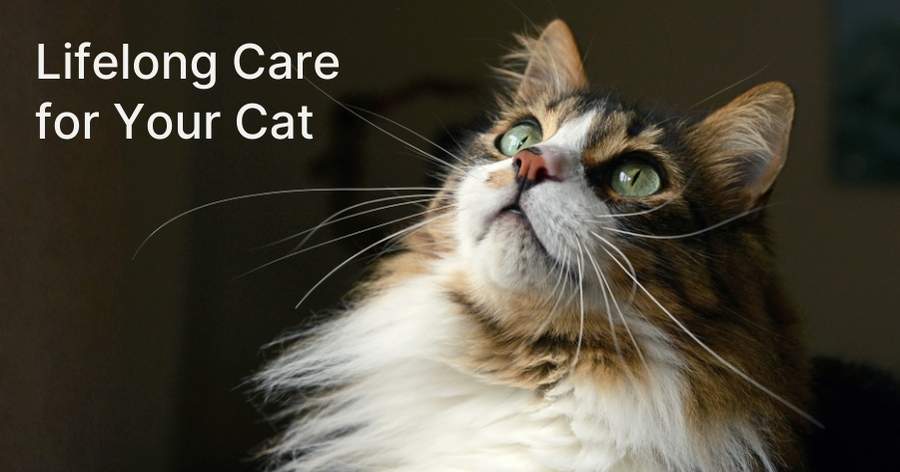
Taking your pet to the vet is always a good idea, for the obvious reason of checking their health. But in honor of National Take Your Cat to the Vet Day on August 22, here is some further support for why keeping track of feline fitness is particularly important.
A Lot Can Happen in a Cat Year: A kitten ages into the human equivalent of a high-school freshman within their first year of life. By the time they turn two years old, they’ve graduated college and joined the job market. Then, around the human age of 24, they begin to age roughly four human years for every one cat year. Given this rapid aging process, a veterinarian can be vital in helping you keep up with your furry friend’s physical changes.
Cats Are Cover-Up Artists: Like us humans, cats can be quite skilled at hiding signs of illness or pain. They may tap into their primal survival instincts and take cover when they’re not feeling well because appearing weak in the wild makes them easy prey for predators. Veterinarians can see through cats’ sneaky ways with diagnostic testing and early detection.
Cat Obesity is Common: More than 50% of cats in the United States are overweight or obese. Being even three pounds overweight can put them at increased risk for diabetes as well as heart, kidney, and respiratory disease. Obesity can also lead to urinary tract issues in cats. A vet can help you manage your cat’s weight with expert diet recommendations.
Cat-Specific Vaccines: A “core vaccine” recommended for all cats is the FVRCP vaccine, which protects against Feline Parvovirus as well as Feline Rhinotracheitis (also known as Feline Herpesvirus) and Feline Calicivirus, both of which cause respiratory infections in cats. Although it’s not a core vaccine, the FeLV vaccine helps protect against Feline Leukemia virus, which can spread when cats interact with fellow felines.
Parasite Control: Fleas, ticks, and intestinal parasites can easily affect cats — the first two parasites are particularly common in the summer. Heartworm, a less common parasite, can cause respiratory and heart issues. Our vets can also easily prevent and treat these issues, so please visit us!
Dental Care Becomes Essential: Studies show that 50 to 90% of cats older than four likely have some kind of dental disease, but vets can easily prevent and treat the most common of these diseases with close monitoring and routine dental care.
These are a few of the many reasons you should aim to take your cat to the vet at least once a year for a wellness checkup. More frequent exams are recommended for kittens.
A typical wellness check includes a head-to-tail examination, with the vet looking for issues with your cat’s eyes, ears, teeth, neck, heart, lungs, abdomen, and legs as well as their skin, coat, and joints.
Blood work and urinalysis are also commonly recommended with wellness exams. Fecal examinations may be recommended for kittens, as they are at high risk for intestinal parasites.
Are you and your feline friend ready to pay us a visit? Call (402) 933-6800 to schedule an appointment!


